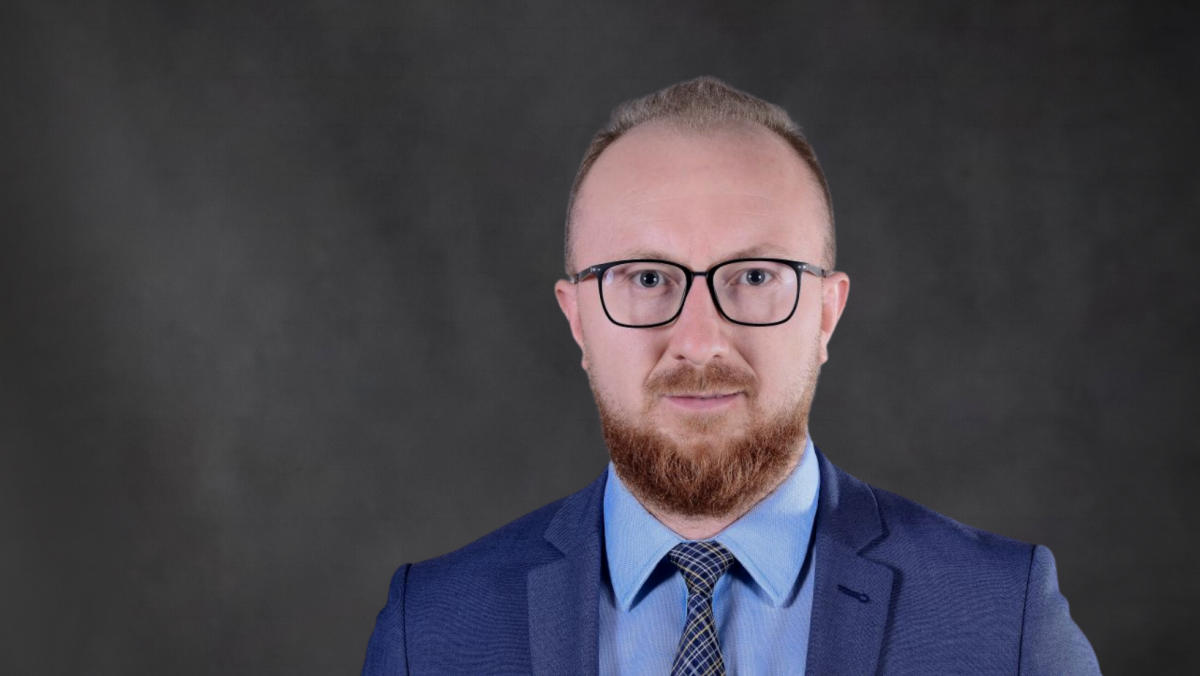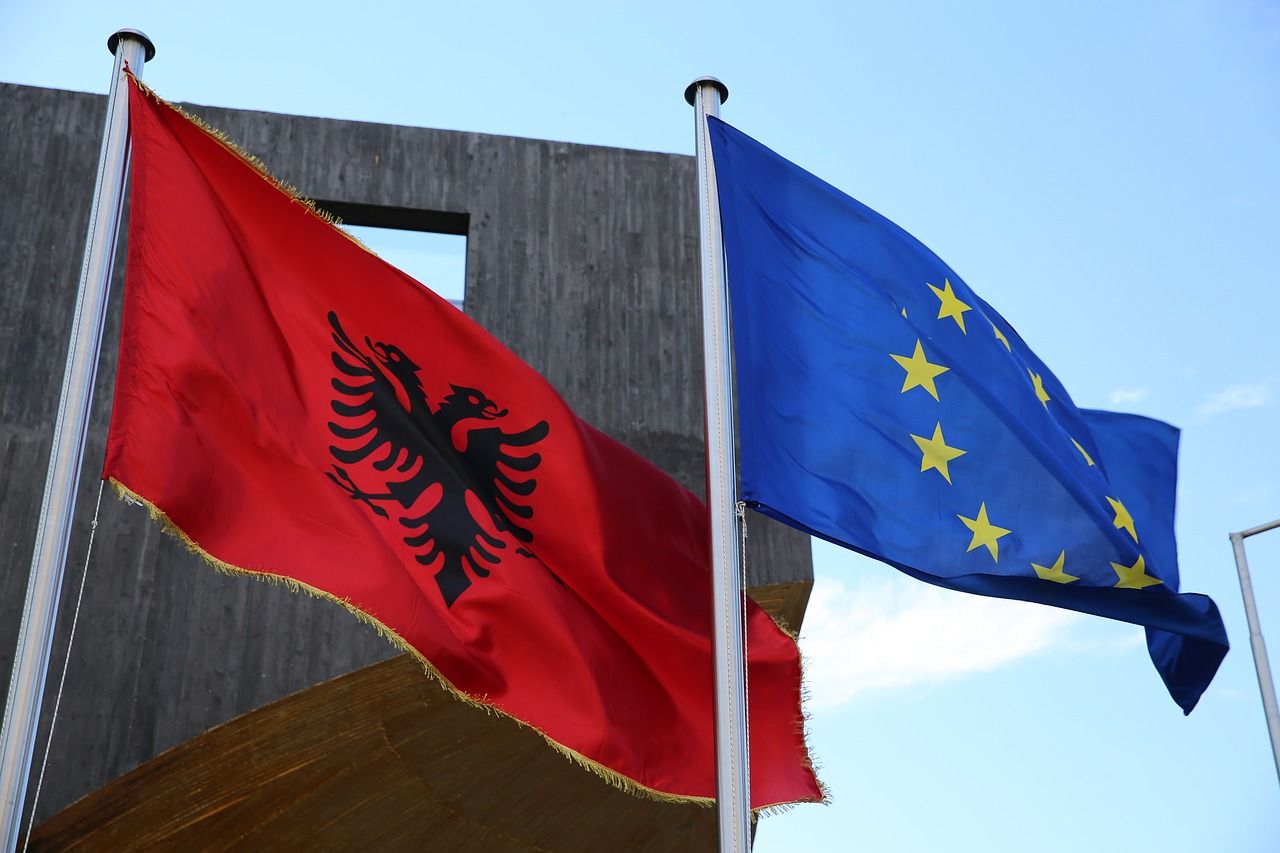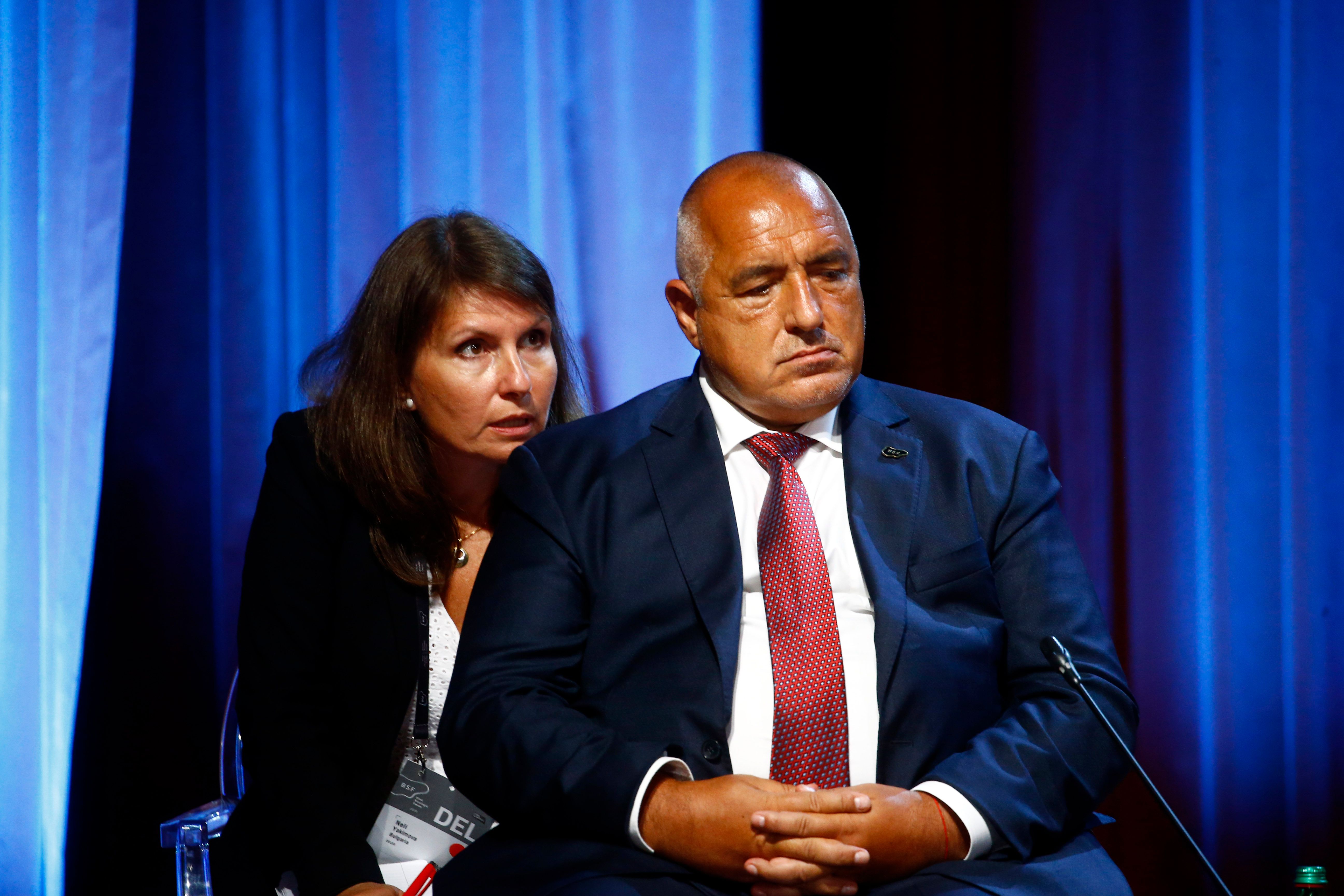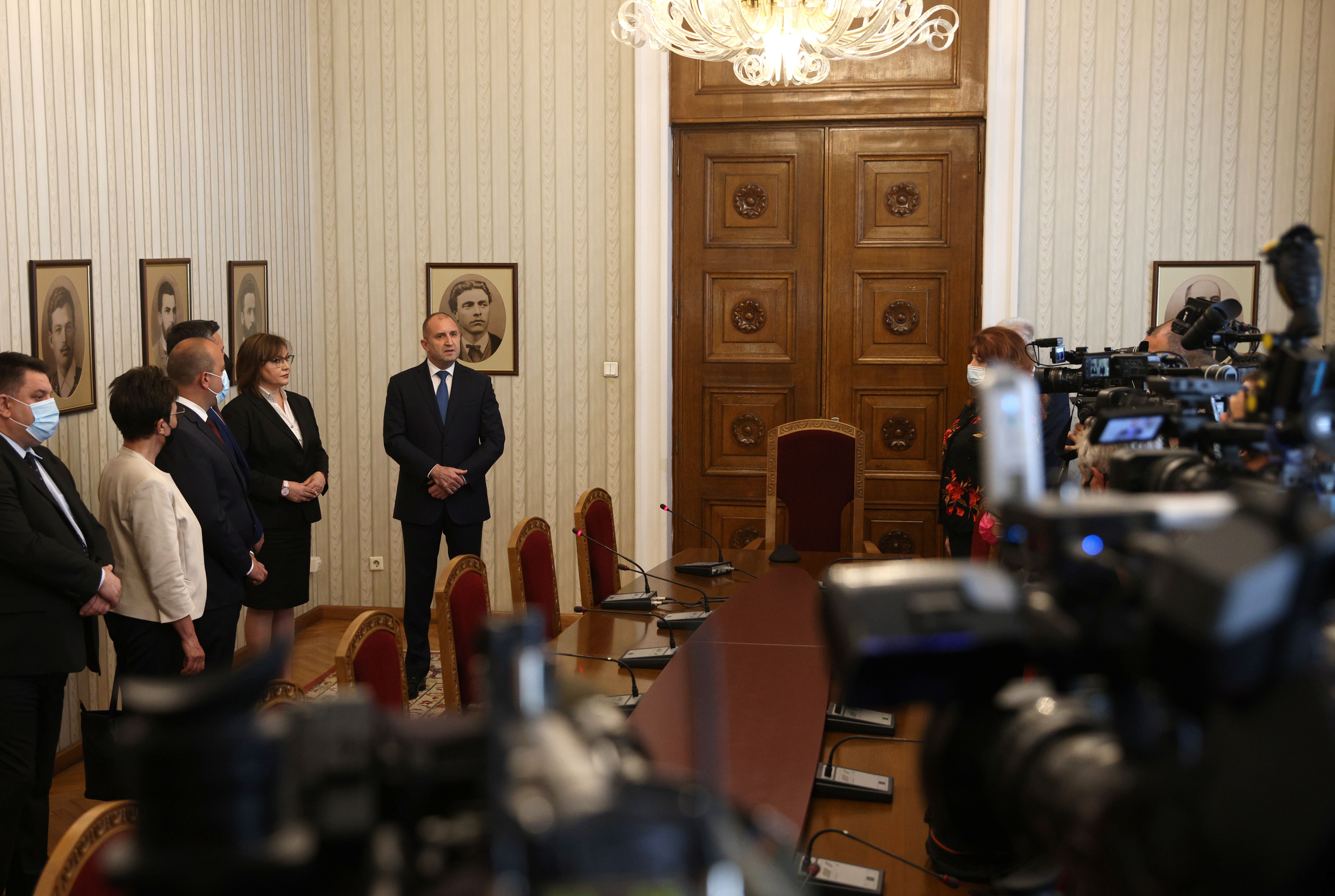Prospects for Breaking the Deadlock in Bulgarian-Macedonian Relations
Due to identity disputes, Bulgaria blocked North Macedonia’s accession negotiations with the EU. The new prime ministers of these countries, Kiril Petkov and Dimitar Kovačevski, want to facilitate breaking the deadlock by tightening sectoral cooperation. They met on 18 January in Skopje, and a week later a joint government meeting was held in Sofia,. Withdrawing the Bulgarian veto may continue to be difficult without the greater involvement of EU partners. Meanwhile, the blockade of Macedonian—and thus also Albanian—talks with the EU is deepening the crisis of the enlargement policy, which is supported by Poland.
 Fot. Xinhua News Agency/ Tomislav Georgiev/ FORUM
Fot. Xinhua News Agency/ Tomislav Georgiev/ FORUM
In December 2020, Bulgaria vetoed the start of North Macedonia’s accession negotiations with the EU because it had accused North Macedonia of not complying with the 2017 Friendship, Good-Neighbourliness and Cooperation Treaty, which also was to regulate identity issues. According to Bulgaria, which sees the territories of today’s Macedonia as the cradle of the medieval Bulgarian Empire, the modern Macedonian nation and language as a result of the Serbisation of Bulgarians by Yugoslavia.
Evolution of Bulgaria’s Position
The Bulgarian authorities changed the conditions for the withdrawal of its veto, as presented by President Rumen Radev in the “Protocol 5+1”. It assumes the signing of a political agreement and the inclusion of a roadmap for its implementation in the Macedonian accession talks with the EU. Radev’s most important condition is a new requirement to include Bulgarians in the Macedonian constitution as a state-making nation. The shift of emphasis from historical issues to minority rights is due to the criticism of Bulgaria’s position by the U.S. and EU institutions and other Member States.
The protocol would also regulate other issues. Among them is the use of the name “North Macedonia”, in force since 2019—its short form (without the word Republic) could, according to Bulgaria, mean claims to its region of Pirin Macedonia. It would also eliminate what it calls “hate speech”, by which Bulgaria refers to, among others, some museum descriptions, monuments, and textbooks, especially concerning the Bulgarian occupation of Macedonia in 1941-1944. It would also result in the relaunch of a joint historical commission suspended from autumn 2020, exchange of archives, and rehabilitation of anti-Bulgarian repression victims. Moreover, it would assume “non-interference in internal affairs”, which would mean Bulgaria could refuse to recognise Macedonians as a minority and, contrary to the judgments of the European Court of Human Rights (ECHR), to register their associations. Bulgaria’s request to recognise the Macedonian language as a Bulgarian dialect remains in force.
New Macedonian Government’s Position
The Kovačevski cabinet, established in mid-January, continues in principle the approach of the Zoran Zaev government, the main force of which was the Social Democratic Union of Macedonia (SDSM). The government indicates that the lack of claims to neighbouring territories results directly from the Macedonian constitution. It supports the further work of the committee of historians, but refuses to recognise pre-1944 Macedonian history as Bulgarian history or the Macedonian language as a Bulgarian dialect.
However, the new government is more willing to take steps to include Bulgarians as a minority in the constitution. Their current number is not known because the results of the 2021 census have not been published yet. According to the previous one in 2002, in North Macedonia there were 1,417 Bulgarians (11th-largest minority), while constitutionally recognised groups included Albanians at 509,000, 78,000 Turks, 54,000 Romani, 36,000 Serbs, 17,000 Bosniaks, and 10,000 Aromanians. However, according to the Bulgarian authorities, from several dozen to even more than a hundred thousand citizens of North Macedonia have Bulgarian citizenship. However, it does not oblige them to declare Bulgarian nationality in Macedonian censuses.
The prime minister is looking for a compromise because in North Macedonia the lack of progress in talks with the EU has been the main reason for the collapse of governments in recent years. It led to the defeat of the SDSM in the local government elections in November 2021 after Zaev resigned due to falling support and no prospects of breaking the deadlock in EU integration. The powerlessness in this regard also led to the resignation of his previous cabinet at the beginning of 2020 and, consequently, early elections in connection with the French blockade of the start of North Macedonia’s accession talks.
Bulgarian Search For a Way Out of the Impasse
The political crisis and technical governments over the past year have paralysed Bulgaria’s constructive policy towards North Macedonia. The appointment of the Petkov cabinet in December 2021 made it possible to resume the dialogue. During his visit to Skopje, Petkov accepted the shortened name of his neighbour and also proposed to establish sectoral committees and flights between the capitals. A joint meeting of the governments and the committees in Sofia resulted in memoranda on agricultural cooperation and on construction of the Skopje-Sofia railway, as well as an agreement that the history commission will meet at least three times in the next four months.
The prime minister has a limited possibility for broader dialogue on identity issues in the face of the split in the ruling coalition. Petkov’s We Continue the Change party and the Democratic Bulgaria in are favour of a more flexible approach, while the Bulgarian Socialist Party and the There Is Such A People rule out concessions. It is the aftermath of the campaign that lasted for much of the last year before the three parliamentary elections and one presidential in which the Macedonian question was the top topic. This resulted in the polarisation of public attitudes in this regard. In a Gallup poll from December 2021, 71% of respondents considered it more important for North Macedonia to regulate its relations with Bulgaria than its accession to the EU, compared to 58% in November 2020.
The easing of the government’s stance is also made more difficult by President Radev, who is the patron of the coalition. Before Petkov’s visit to Skopje, he convened the National Security Council, which confirmed the cross-party consensus on the primacy of identity issues. In addition, the prime minister is criticised by the opposition Citizens for European Development in Bulgaria. Its leader, Boyko Borisov, as prime minister, blocked the Macedonian talks with the EU and has accused Petkov of negligence of not trying to get his U.S. and EU partners to understand Bulgaria’s position.
Conclusions
The change of governments in Bulgaria and North Macedonia is conducive to reopening talks and sectoral cooperation. However, it does not mean that the dispute automatically will be resolved. Bulgaria’s consent to the shortened name of its neighbour is an insignificant gesture, as it recognised the full name of the “Republic of North Macedonia”. It will be difficult for Petkov’s government to give way on issues of identity due to its dependence on coalition partners who consider new early elections as possible, in which the reawakened nationalist sentiment would be important.
From North Macedonia’s perspective, the dispute with Bulgaria over identity is a greater challenge than the dispute with Greece over the name of the state. Science excluded connections between the Slavic nation of Macedonians with ancient Macedonia. Meanwhile, the adoption by North Macedonia of Bulgarian history until 1944 as its own would mean, for example, recognising Bulgaria’s cooperation with Nazi Germany as part of own historical experience, so not from the perspective of the victims but of the occupiers. Compromises on the issue of language are particularly difficult because it is—along with religion and territory—an essential element of national identity. On the other hand, building an absolute majority in the parliament may be the main difficulty in the event of a possible further amendment of the constitution and the inclusion of the Bulgarian minority in it. Fulfilling Radev’s postulate would paradoxically deprive Bulgaria of the arguments that Macedonians are a group within the Bulgarian nation. Due to this, the president’s demand is criticised by the Bulgarian scientific circles. As a result, fulfilment of the demand by North Macedonia may not guarantee Bulgaria withdraws the veto.
Blocking European integration in the Balkans—now by Bulgaria and previously by Greece, Slovenia and France—due to bilateral relations or internal affairs has become bad practice in the EU’s enlargement policy. On the other hand, a new element is the extension of the Member State’s demands to the candidate to areas outside the negotiating framework. This diminishes the technical nature of the accession process, which should be based on pro-democratic reform, and demobilises neighbouring countries for talks. It also discredits the EU when a Member State can make a demand on the candidate regarding minority rights that it does not fulfil itself despite the judgments of the ECHR.
Finding a compromise to the Bulgarian-Macedonian dispute that both governments will be able to present as a success may be difficult without the involvement of EU partners. Poland, together with Germany, whose new government declares its commitment to EU enlargement, and with France, which holds the presidency of the EU Council, could indicate the harmfulness of the impasse to enlargement policy and strive to unblock it. An opportunity for cooperation in this area may be the announced intensification of contacts within the Weimar Triangle.






